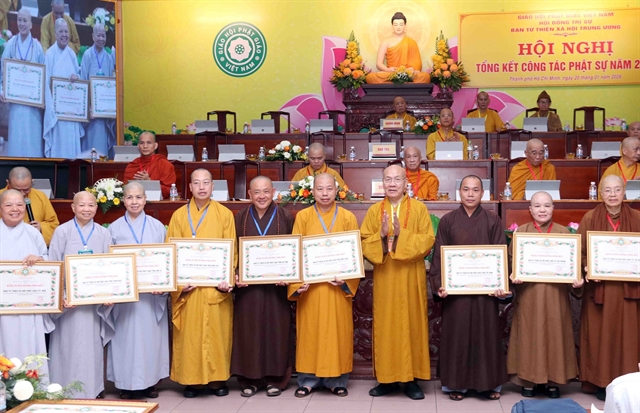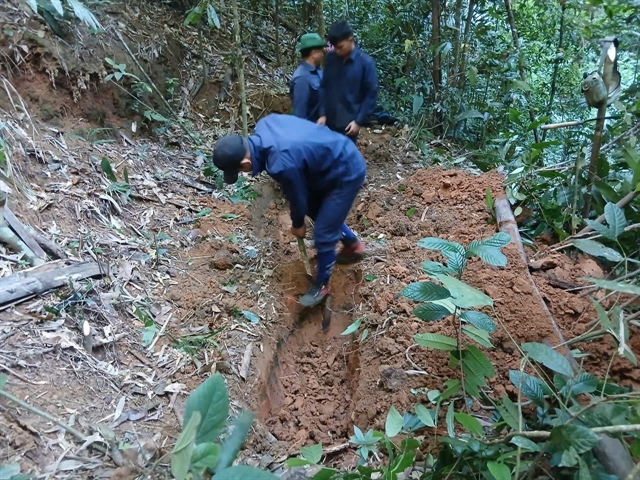

Last week Việt Nam News asked its readers to comment on the flak that public figures, particularly celebrities, receive on social media. Here are some responses.
Last week Việt Nam News asked its readers to comment on the flak that public figures, particularly celebrities, receive on social media. Here are some responses.
Hari Chathrattil, Indian
Public figures, including celebrities, usually crave publicity, and harsh scrutiny including criticism is a corollary of this craving. It is just that the profusion of social media has widened the scope for overboard or unjustified criticism. However, those at the receiving end can respond coolly and smartly to this, enhancing their public image.
That said, there can be no argument that some acts deserve public shaming. Rapists and pedophiles cannot demand privacy or immunity from harsh criticism, for instance, because their actions hurt vulnerable people badly.
The recent backlash in the form of public shaming of a US university student let off lightly for raping an unconscious woman as well as a campaign to remove the absurdly lenient judge is an instance where strong public reaction is justified.
Instead of saying she is hurt by criticism that she ignored the plight of people who cannot afford to pay more for safe food, My Linh could have responded intelligently and wisely. She could have apologized or explained her stand better. She can initiate projects to make safe food cheaper. On the other hand, Miss Vietnam might have made a prudent move in deleting her Facebook account, especially if her past statements could prove embarrassing.
Social media is here to stay, and it should remain a bastion of free speech. Public figures are using it to deliver their messages, so they should be open to valid criticism as well.
Luong Khanh, Vietnamese
With the profusion of social media like Facebook these days, many people have the opportunity to “throw stones” at famous people for their “mistakes” or “carelessness.” Sometimes, there too much focus on the private lives of famous people.
If I were to receive a lot of public criticism, my response would be as follows:
- Keep calm;
- Try to read all comments and sort out negative and positive ideas;
- Reflect on what I have done and why others have disagreed;
- Choose a good opportunity to explain what I have said, done or gotten involved in; and
- Thank people for the comments and say that I do not want to argue any more.
I would also try to use the criticism to improve myself.
Each person will have different approach to problems. But it would be smart to take time, avoid knee-jerk reactions, and keep calm.
Linh Anh, Vietnamese, Hà Nội
As far as I remember, “throwing stones” in Vietnamese originally meant constructive criticism.
A group of girls were found trampling on flower gardens in Hà Giang Province. A well-known model was seen violating the traffic law and shouting at the police officers when she was fined. A district official was caught kissing a bare-breasted statue in Lam Dong Province. All of them deserved to be “stoned.” Later, they apologized for their inappropriate behaviour. They surely learnt their lessons.
However, a dominant trend now is for aggressive young netizens to give free vent to their anger against certain people or behaviors in a very crude way. Many seem ready to criticize and even insult people for no reason. Sadly, the use of abusive language turns arguments into an ugly battlefield.
The story of diva My Linh is typical of celebrities being aggressively targeted for something they’ve said without considering the context in which the statements were made.
What she felt must be similar to what writer Trang Hạ experienced when she answered a question from an online newspaper. Her photos on Facebook were caricatured in a very insulting way, and obscene language was used.
So it’s easy to understand why the newly found national beauty queen closed her Facebook page on the final day of the contest. We can even say she was a little late, because some of the “statuses” she shared when studying were picked upon to insult her.
Many public figures choose to fight back and engage with netizens who criticize them. Some of them have reminded people about the culture of debate, the need to be polite, etc. Its time that netizens learn to debate properly.
Andrew Burden, Canadian, Hà Nội
There are times when public shaming is justified, even necessary. People using public space as a toilet, for instance. Not acceptable even if the person has had too much beer. Dumping trash on the road from a motorbike is another such act where people can shout and shame the offender.
The social phenomenon of ‘throwing stones’ is bullying, plain and simple. These bullies and cowards are ‘keyboard warriors.’ They’re anonymous trolls hiding behind keyboards insulting everyone.
It’s a huge problem in the West, with businesses being hacked or falsely accused while some people, usually girls commit suicide over public shaming. Parents as well as the legal sector are ignorant, slow to react and can’t understand this Brave New World.
Starting from kindergarten, kids need to be taught to read new maps and dimensions. Science and technology cannot be put back into a bag any more than Pandora close the box.
Just as there is a need to teach our kids swimming (so many Vietnamese kids drown each year), there is a need to teach young impressionable kids about social media etiquette as well as some of the dangers that lurk on the Internet. — VNS




